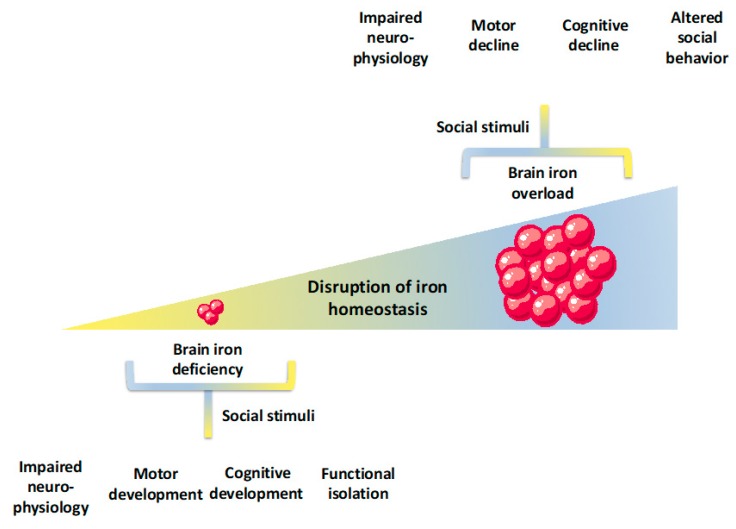Figure 3.
Multilevel repercussions of iron deficiency and iron overload in the brain. Brain iron deficiency is associated with disruption of neurophysiological mechanisms that, within a social context that does not provide regular stimuli, compromises motor and cognitive development (e.g., impaired motor sequencing and bi-manual coordination, poor executive function, attention, and memory). Subsequently, these can impact social behavior, which leads to, for instance, functional isolation. As for the impaired neurophysiological mechanisms associated with brain iron overload (e.g., exacerbated brain oxidative stress, neuronal cell death), these are associated with motor and cognitive declines (e.g., motor slowing, insufficient adjustment and altered feedback processing and sensitivity, memory loss, and impaired decision-making). Within a social context that does not provide suitable stimuli, these might impact social behavior leading to, for instance, hesitant behavior and unwillingness to interact with others.

